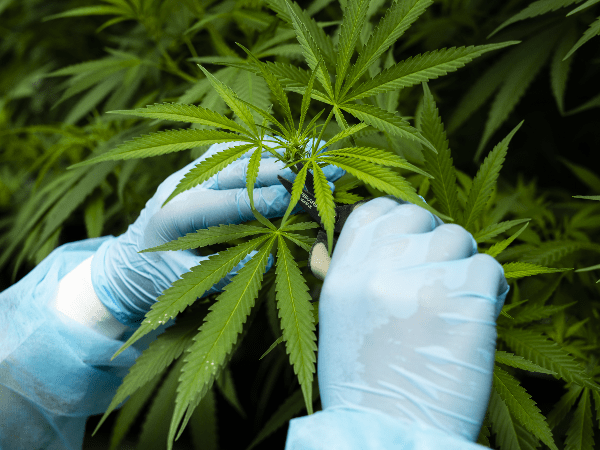Thailand became the first country in Southeast Asia to legalise the production, import and export of cannabis for medical purposes in 2018, following an amendment of the Narcotics Act to allow broader use for business opportunities, including tourism.
According to the “Asian Cannabis Report” conducted by Prohibition Partners, the market value for the legal cannabis industry in Asia is projected to reach US$12.5 billion (392 billion baht) in 2024.0:09/1:32
The value of the cannabis industry in Thailand is estimated to be $661 million, with $237 million from medical cannabis and $424 million from the recreational cannabis market, which is not yet legal.
As awareness of medicinal cannabis grows, cannabis tourism has strong potential to help the tourism industry recover from its record slump caused by the pandemic, said Jacky Ong, president of Cannabis Investment Summit World, a cannabis virtual event in Thailand.
Cannabis tourism should boost Thailand’s status as a leading medical and wellness tourism destination, said Mr Ong.
This strategy could attract upper middle to luxury tourists, the elderly, and medical travellers diagnosed with cancer and epilepsy, he said.
Mr Ong said tourists from the mainland and Southeast Asia represent a potential market in the post-Covid era because no other country in Asia allows the distribution of cannabis for medical and wellness end users.
However, tourists from North America, who have a variety of cannabis choices locally, might not be a big market for cannabis tourism here, he said.
To take advantage of this potential, Thailand must develop and promote cannabis-related hospitals and clinics, certify cannabis doctors, and build manufacturing facilities and wellness resorts as well as tour packages to gain better recognition, said Mr Ong.
Some plants on display at Pethlanna Organic Commodity Enterprise in Lampang.
Kattikamas Thanyajaroen, executive officer of Than Global Travel, said the company wants to develop a niche market in medical tourism thanks to the country’s leading position as a medical hub and wellness destination.
A few years ago, Than Global partnered with Rajamangala University of Technology Isan, Sakon Nakhon Campus to develop educational cannabis tours after the university was granted permission to grow plants for the academic purpose of studying the medical benefits.
The pilot phase of the tour brought 3,000-5,000 health volunteers and officials from sub-district hospitals to visit plantations in Sakon Nakhon and Buri Ram last year.
Ms Kattikamas said the tourists consisted of people of all ages, from millennials who want to try new things, to business owners keen to venture into this industry, as well as the elderly who care about their health and medical issues.
The three-day, two-night package cost between 8,900 baht to 9,900 baht, while the company also offered a 1,590-baht “Cannabis Pass” for tourists 18 and older to join a half-day cannabis tour in Sakon Nakhon, Buri Ram, Chiang Mai, Loei, Nakhon Ratchasima, Udon Thani, Nong Khai and Nakhon Phanom in April. This was before the third outbreak abruptly put a stop to all activities.
She said the next phase of cannabis tours will focus on medical care for people who want to use cannabis at clinics or universities for treatment.
Another option is to offer factory tours to original equipment manufacturers of cosmetics, skincare products and other cannabis or hemp products to serve demand from investors.
“There will be more opportunity from cannabis businesses in Thailand in the next five years, especially in tourism as the country already has a strong reputation in hospitality,” Ms Kattikamas said.
“But if the country does not act fast to promote cannabis tourism, potential tourists will flock to other destinations such as Laos and Malaysia, which also plan to join the lucrative cannabis market.”
Tourists visit Pethlanna Organic Commodity Enterprise in Lampang, which offers marijuana tours.
People still have negative perceptions and a stigma exists towards cannabis, which was once perceived as a narcotic even though most people do not develop an addiction as happens with alcohol and cigarettes, said Ong-ard Panyachatiraksa, adviser to Pethlanna Organic Commodity Enterprise in Lampang, which offered cannabis tours to tourists early this year.
Communication about cannabis for tourism and its contribution to the overall economy is vital to create a better understanding, he said.
Mr Ong-ard said if people open up more to cannabis, it will lead to an opportunity to legalise its use in other arenas such as recreational purposes, which supports the growth of the industry.
bkpost




